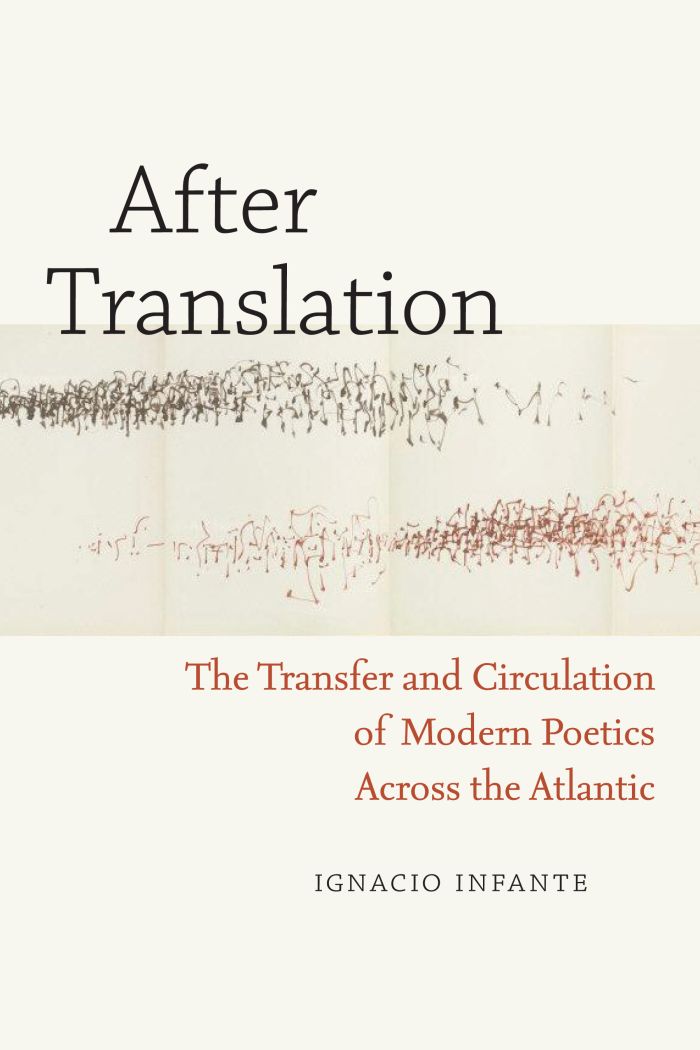After Translation
The Transfer and Circulation of Modern Poetics Across the Atlantic

This book can be opened with

Translation—from both a theoretical and a practical point of view—articulates differing but interconnected modes of circulation in the work of writers originally from different geographical areas of transatlantic encounter, such as Europe, Latin America, North America, and the Caribbean.
After Translation examines from a transnational perspective the various ways in which translation facilitates the circulation of modern poetry and poetics across the Atlantic. It rethinks the theoretical paradigm of Anglo-American “modernism” based on the transnational, interlingual, and transhistorical features of the work of key modern poets writing on both sides of the Atlantic— namely, the Portuguese Fernando Pessoa; the Chilean Vicente Huidobro; the Spaniard Federico Garcia Lorca; the San Francisco–based poets Jack Spicer, Robert Duncan, and Robin Blaser; the Barbadian Kamau Brathwaite; and the Brazilian brothers Haroldo and Augusto de Campos.
“. . . an original, ambitious, and timely contribution to several established and emerging fields: comparative modernisms, transnational literary studies, poetics, and translation studies.”——Rebecca Walkowitz, Rutgers University
By no means an easy read, this partisan, polemical, and political study will surely occasion both praise and opprobrium for its spirited challenge to the divided status quo in translation, cultural, and transatlantic studies. . . Recommended—— Choice
Ignacio Infante’s After Translation is a milestone in the process of overcoming longstanding and hardly justifiable boundaries, not only in so-called Latin American and Iberian Studies, but also in the wider context of the relationships between Spanish and Portuguese Studies and Cultural Studies/Theory at large.—Journal of Lusophone Studies
As a study of literary networks of influence in relation to poetics and translation, Infante's study has much to call attention and provoke further work.—The Year's Work in English Studies
With an eye towards the future, but still completely aware of the historical past, Infante invites his audience to envision a new framework for approaching transatlantic poetry.—Recherche Litteraire / Literary Research

